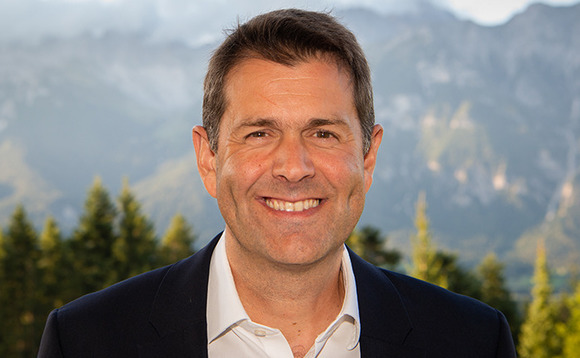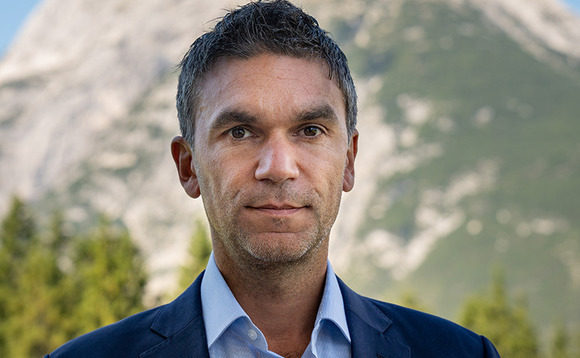
GP Profile: Triton lays out ESG plans

Triton's head of ESG, Graeme Ardus, and recently appointed head of sustainable investing, Ashim Paun, tell Harriet Matthews how the GP is continuing to integrate ESG into its due diligence, deal-making and fundraising processes
Founded in 1997, Triton has traditionally invested in companies in the industrial, business services, consumer and healthcare sectors, focusing on the DACH, Nordic and Benelux regions, as well as France, Italy, Spain and the UK. It manages a flagship fund strategy, as well as its Triton Smaller Mid-Cap (TSM) funds and its direct lending vehicles.
Like many GPs, Triton is increasingly looking at ways to integrate ESG into its deal-making and fundraising processes. The GP announced that it had hired Ashim Paun as head of sustainable investing in September 2021, as reported.
The timing was right to take the next step in the development of the GP's ESG strategy, head of ESG Graeme Ardus tells Unquote: "We've been running our ESG programme since 2013 and have grown the scope and the capabilities of the team, looking at how we could build better, higher-quality businesses. In that time, our approach evolved from risk management to also sourcing opportunities. By responding to exponentially growing demand for deeply embedded ESG in investment processes – especially since Covid – we are thus building on a strong platform, to future-proof what we aim to invest in."
Triton's expanding ESG team now plays an established role in fundraising as the firm moves towards its next vehicles, Paun says: "ESG will be core to retaining and adding new clients, since LPs are more focused on ESG being a differentiating factor between where they invest their capital."

Paun draws on his previous experience at ESG when assessing market needs. "At HSBC, I met with investors across a range of asset classes, strategies and geographies, and it was clear that there was increasing demand for money to be stewarded by houses that understood ESG risk and how to thematically deploy capital into an unpredictable world. That fits well with Triton, and sustainable, thematic investing fits well with long-term time frames of PE – you need to be able to take a 5-10-year view."
Triton held a final close for its Triton Fund V vehicle in December 2018 on EUR 5bn. It held a final close for its second smaller mid-cap fund in March 2021 on EUR 815m, surpassing its EUR 600m target, as reported.
Ardus notes the importance of ESG reporting to Triton's fundraising process and the management of its funds. "On the reporting side, we do everything we can to demonstrate data and performance improvements, which is demonstrated in our recently published second annual sustainability report. This assures LPs that we have a structured and proactive approach that aligns with their interests."
Triton announced in December 2021 that it had taken a EUR 1.45bn ESG-linked financing facility for its Triton Fund V, as reported. The facility is part of the formalisation of the GP's ESG programme and is intended to support the delivery of Triton's sustainability objectives across its portfolio. These facilities have risen to prominence over the past 12 months in particular, with many GPs taking such facilities to cement their ESG credentials, integrating it into their usual fund financing lines.
Investing with ESG
In addition to fund-level ESG initiatives, ESG is playing an increasing role in Tirton's deal sourcing. "The ESG team has been working with an expanded scope in the strategic part of deal processes," Paun says. "When we decide that there may be a specific product, service or technology that thematically looks like a good place to have exposure to over a specific timeframe, we can then look for companies that are aligned with this. We also look at reactive sourcing – in the first month of my role, we have had occasions when a deal team has asked us what our team's view is on certain products and technologies using our sustainability lens."
Having said this, Paun emphasises that shaping the companies that it owns is just as important as finding those that are already considered to have strong ESG credentials or strong ESG themes. "It's a question of pivoting companies, too. When we own a portfolio company, we could have a holding period of several years, and the world will have changed significantly in that time. We can identify new challenges for existing portfolio companies, looking at the velocity of change, politics, technology breakthroughs or even an 'unknown unknown' like the pandemic, and then at how to align the company. This could be through an organic pivot, or it could be through M&A."
The GP is able to reject investments based on ESG grounds, too, says Ardus: "We have previously made decisions not to invest in certain companies as we assessed they were not aligned with what we see as good opportunities in the long-term." However, much of the work of Triton's ESG team involves setting up processes for assessing potential investments at an early stage. "Our ESG strategy is now about putting more structure and rigour into the process earlier on – for example, by looking at the incoming EU Taxonomy, we can provide information to the advisory committee."
This process does not take an exclusionary approach, says Paun. "In identifying a material sustainable trend or theme, it's not about ruling out sectors but taking a view on their sustainability, in terms of factors including demographics, climate change, data protection, corruption, and supply chain management. It's about whether we want more, less or no exposure to a certain area. Yet it is not always binary. We have looked at companies with thematic headwinds and tailwinds, from a sustainability point of view, and must ensure we properly understand these in the context of the valuation of the opportunity."
Staying ahead of the game
All private equity investments involve taking a medium- or long-term view, but this is particularly important from an ESG perspective. "Given that we will own these businesses for a number of years, we seek to get comfortable that the products are aligned with our core sustainability themes," says Paun. "Triton has a successful track record of buying companies, growing them and adding to their value, but we want to make sure that we buy companies that not only benefit from expertise and ownership, but will also be better aligned with the way the world is changing."
Triton aims to move towards new market segments ahead of its competitors, reaping the rewards of being ahead of the game. "We need to look for the next waves of clean technologies, for example, looking at what the market has not embraced and priced in yet in terms of multiples," says Paun. "We look at which sectors are likely to be decarbonised next, given policy, political drivers and technological advancements. Beyond the initial building blocks of renewables and electric vehicles, where will we see transition next as economies aim for deeper decarbonisation – the hydrogen value-chain, waste management businesses and carbon capture are possible candidates. Biodiversity loss is also a topic that needs to be addressed along with climate change."
Triton's recent acquisitions include the take-private of pharmaceuticals and biotechnology business Clinigen, which it is set to acquire at a GBP 1.3bn valuation. The GP highlighted the company's role in developing treatments for patients with unmet needs as a key differentiating factor and reason for investing.
Proving the strategy
Ardus cites several of Triton's recent exits as examples of successful ESG alignment and value creation. The GP sold steel recycling business Ovako via a sale to Japan-based trade buyer Nippon Steel & Suimoto Metal Corporation in March 2018, ending a seven-and-a-half year holding period. The exit generated a money multiple of 2.2x, according to Unquote Data. "The business substantially improved its ESG performance under our stewardship," says Ardus. "We invested in improving the energy efficiency of the business. In parallel, we focused on measuring the carbon footprint and tonnes of CO2 emitted per tonne of recycled steel produced. It was clear that Ovako's products had a lower carbon footprint than many of its competitors. By enabling this transparency and customer demand for lower carbon footprint steel, the trade buyer saw a premium in integrating this business into its operations."
Ardus further cites Logstor, a district heating business in Denmark. Triton acquired the business in 2013, selling it to insulation and building envelopment business Kingspan Group in March 2021. The deal valued Logstor at EUR 253m and generated returns of 2.4x for Triton, according to Unquote Data. "The trade buyer saw that the company enables the decarbonisation of the built environment," Ardus says. "This is a good example of how sustainability-aligned products and services can drive value creation and ultimately make a portfolio company more attractive to suitors."
While the GP continues to work towards a track record on ESG in its private equity portfolio, Triton is also continuing to assess how it implements ESG in its direct-lending strategy. "Typically we have majority control in our PE funds, so it is easier to drive change there," says Ardus. "In credit, we don't have this control, but our responsible investment policy is consistent across all our funds. We screen and monitor this, which we think this is a more proportionate approach, but we continue to look at how to improve it."
Latest News
Stonehage Fleming raises USD 130m for largest fund to date, eyes 2024 programme
Sponsor acquired the public software group in July 2017 via the same-year vintage Partners Group Global Value 2017
Stonehage Fleming raises USD 130m for largest fund to date, eyes 2024 programme
Czech Republic-headquartered family office is targeting DACH and CEE region deals
Stonehage Fleming raises USD 130m for largest fund to date, eyes 2024 programme
Ex-Rocket Internet leader Bettina Curtze joins Swiss VC firm as partner and CFO
Stonehage Fleming raises USD 130m for largest fund to date, eyes 2024 programme
Estonia-registered VC could bolster LP base with fresh capital from funds-of-funds or pension funds









